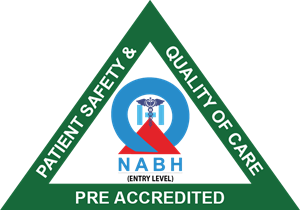Every day, we come into contact with various substances and products, many of which may harbor hidden dangers. Carcinogens causing cancer in day-to-day life are more prevalent than many realize. We might use them at home, encounter them at work, or even ingest them through our food. It’s crucial to know where these risks lie and take steps to minimize exposure to carcinogens.
Introduction to Carcinogens in Daily Life
Carcinogens are things that might cause cancer. They exist in places you might not think of, like your kitchen or your makeup bag. These harmful substances are pretty much all around us every single day of our lives.
In India, cities are growing quickly and factories keep popping up. With this growth, it’s important that we all know more about these invisible dangers. This way, we can take steps to protect ourselves from their harmful effects by learning more about them and how they can get into our daily lives.
Decoding the Health Risks of Carcinogens
Once exposed to carcinogens, harm occurs to our cells immediately. This change can cause the cells to multiply fast and unrestrained. As a result, this can lead to cancer developing in our bodies over time. Knowing the side effects of carcinogens helps people avoid these risks effectively.
In everyday scenarios, you might run into cancer-causing agents often in products and places you least expect:
- Cigarette smoke is a common and harmful carcinogenic substance found everywhere.
- Some cosmetics contain dangerous chemicals linked to cancer risks.
- Various household cleaning products come with harmful chemicals that could cause cancer.
Identifying Carcinogens at Home
Our homes often harbor products that contain hidden carcinogens in household products. Some cleaning agents have formaldehyde which is a known risk. Plastics and food containers often contain bisphenol A (BPA), which can be harmful. Furniture and carpets may be treated with flame retardants, posing potential dangers too.
To safeguard against these, it’s vital to read product labels meticulously. Learning about household carcinogenic substances enables informed choices for safer alternatives. Opt for natural cleaning agents, BPA-free plastics, and untreated furniture to reduce exposure.
Navigating Occupational Exposure Risks
Certain jobs are riskier when it comes to carcinogen exposure. Workers in manufacturing, construction, and agriculture in India often encounter hazardous substances, increasing cancer risk.
For instance, asbestos in construction poses a well-known danger. Following safety practices like wearing protective gear and ensuring good ventilation can help reduce exposure. Training and awareness are key for employees’ safety in these high-risk sectors.
Unveiling Connections Between Food and Carcinogens
Some folks think all food additives are bad for your health. Not every additive is dangerous, but some can raise red flags. Foods with carcinogenic properties include items with nitrates, certain dyes, and preservatives. It’s crucial to know the truth and not believe everything you hear.
Choosing organic foods and sticking to traditional Indian meals can help reduce the intake of these additives. Organic options tend to have fewer harmful chemicals, while traditional Indian dishes spotlight ingredients rich in anticarcinogenic compounds.
Adopting Lifestyle Changes to Minimize Carcinogen Exposure
Switching to organic living can help lower exposure to cancer-causing agents every day. Eating less processed food which often contains carcinogenic substances can be beneficial for overall health. Simple changes, like choosing fresh local produce, make a substantial difference.
A balanced diet filled with antioxidants fights the bad effects traced back to carcinogens. Increasing your intake of fruits and vegetables boosts fiber and gives essential vitamins to your body. Including nuts and seeds gives you healthy fats needed for good health. Drinking enough water is crucial; sugary drinks should be avoided for better health outcomes. These minor shifts in daily choices contribute greatly to long-lasting health benefits.
Empowering Communities Against Environmental Carcinogens
Imagine the world uniting for cleaner surroundings we all live in. It’s more than a hope; it’s something achievable by each of us. You play a crucial role in sparking change around you every day. To cut down on carcinogens causing cancer in day-to-day life, join hands with local groups for change.
Community-led clean-up movements can successfully manage waste better and highlight risks of carcinogens in household products. Run workshops now and then to teach others about daily threats, such as cosmetics with cancer-causing chemicals.
Periodic events help spread knowledge about avoiding dangerous cleaning products and keeping families safe from numerous hazards.
Your action doesn’t stop at neighborhood initiatives alone. Get involved with leaders making laws on environmental safety too. Your voice is crucial in demanding strict rules over common carcinogens in daily products. Stand up through petitions and talk with lawmakers about effects of carcinogens on health.
Push for labels that tell you exactly what’s entering your home, pushing for more open practices. These efforts lay a path to larger steps protecting our future selves, promising a life healthier for everyone.
Understanding Technological Risks: Radiation Exposure
Every day, you’re immersed in technological advances, yet they’re not always harmless. Devices like mobile phones bring ease but also emit harmful radiation. Similarly, gadgets such as laptops and routers are everywhere but can pose risks too. Learning about this radiation exposure allows you to lessen its effects on your life. Carcinogens from tech sources may not be visible but should be taken seriously due to cancer links.
You can easily minimize risks with some practical steps. Use speaker mode or earphones to dodge direct phone exposure. Place routers in rooms less used by people to lower contact with Wi-Fi radiation. Avoid standing close to microwaves while they’re operating, and let your devices rest sometimes by powering down. Share these helpful tips with friends and family to promote smarter tech habits, reducing exposure to everyone around you.
Concluding Insights and Call to Action
Awareness about the effects of carcinogens on health is key. It’s about knowing which everyday items contain these harmful things. When you recognize this, you can make smarter choices to be healthier. In places like home and work, we face common carcinogens daily. Picking safer products means taking a step toward a healthier world.
Lowering carcinogen exposure needs everyone to act together. You can start with small changes, like finding safer replacements for cosmetics with cancer-causing chemicals. Joining advocacy efforts or supporting better policies helps too. Each action you take supports a healthier future for you and everyone else.
Take Action Today for a Healthier Tomorrow!
At Shishira Hospital, we’re dedicated to supporting you in reducing exposure to harmful carcinogens and protecting your health. By making informed choices, adopting healthier lifestyles, and staying proactive about your well-being, you can minimize your risks and lead a healthier life.
Consult with us today to discuss how we can support you in making the best decisions for your health!
Your future health starts with the choices you make today.



